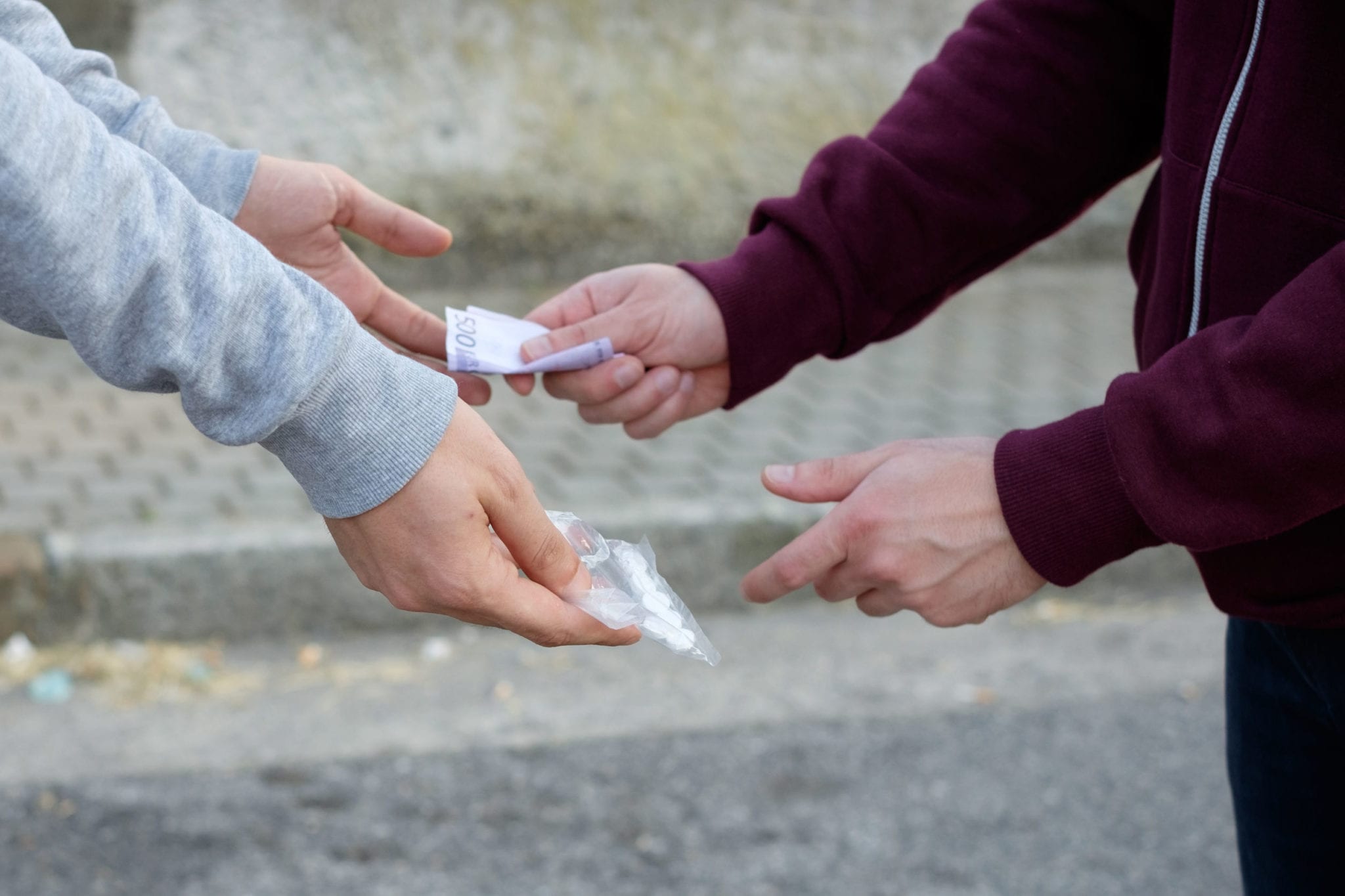
The U.S. Department of Justice reports that drug trafficking constitutes 1 in every 5 drug-related arrests made in the United States. Texas is no exception to this, as drug trafficking is quite common here.
In fact, parts of the Lone Star State have been described as High-Intensity Drug Trafficking Areas, and the DOJ reports that the Texas-Mexico border is extensively used by Drug Trafficking Organizations to bring illicit drugs into the U.S.
Partially because of this, Texas courts don’t take drug trafficking charges lightly. Sentencing guidelines for drug trafficking crimes are outlined in sections 481.112, 481.113, 481.1121, and 481.114 of the Texas Health and Safety Code. If found guilty, one may be served with the following sentences:
- Minimum punishment: a prisoned sentence of between 180 days and two years in a state jail and/or fines of not more than $10,000.
- Maximum punishment: life confinement in the Texas Department of Criminal Justice, a prison sentence of between 15 and 99 years and/or fines of not more than $250,000.
Additionally, remember that if you are caught trafficking drugs in Texas, you may face either state or federal prosecution. There are diverse circumstances under which a state drug charge may turn into a federal drug charge.
The severity of the charge you face in Texas state court will depend on:
- The type of illicit drug involved, including which of the five Texas drug schedules it’s classified under.
- The amount being trafficked; generally, the smaller the amount, the less severe the charge and sentence.
If you want to avoid or minimize penalties, it’s important to understand the laws that apply to trafficking in Texas.
According to the law, there are three actions you can take that qualify as drug trafficking in Texas: transporting, distributing, or possessing illegal drugs with the intent to distribute them.
Here’s a more in-depth look at what each of those things means.
Transporting Illegal Drugs in Texas
Quite simply, if you are caught moving a large quantity of drugs from one place to another, this is considered “transporting” and qualifies as a form of trafficking.
One important thing to keep in mind: this act must be done knowingly in order to count and lead to a conviction. In other words, if your buddy packs his car with drugs without telling you and asks you to drive it to another friend’s house, you should not have to pay the price for moving drugs you didn’t know were there.
Distributing Illegal Drugs in Texas
What about that buddy who tricked you into moving his drugs? Would he be safe because he wasn’t actually the one moving them?
Many dealers believe this (it’s one of the reasons they do it), but under Texas law that’s not the case. This kind of action falls under distribution, which essentially means selling drugs or giving them to someone else to sell.
Technically, in the story described above, your buddy gave them to you, and you would have given them to the friend who, in theory, was tasked with selling them. This does make the case a bit less of a straight line, but it’s still fairly viable.
Conviction would likely revolve around the prosecution’s ability to prove your buddy’s intent in sending you out with the drugs. Can they show that it was his goal to get them to the other friend to sell them? Is this something they had done before?
Possession with the Intent to Distribute in Texas
This is one of the trickier drug laws in our state, because in some cases it can turn mere possession into drug trafficking.
How?
Possession with the intent to sell requires the prosecution to present evidence showing that the drugs in question were for commercial purposes and not just personal use.
An example is a 2017 case in which two Beaumont brothers and an accomplice were charged with collusion to possess with intent to distribute crack cocaine.
Circumstantial evidence that may constitute a crime of possession with intent to sell or distribute include:
- Plastic baggies for distributing or selling drugs
- A drug-weighing scale
- Business records indicating drug purchases and/or sales
- A large sum of cash found in the defendant’s possession during the arrest may also be tabled as evidence that drugs were being sold.

Be careful, though. There have been cases where prosecutors have brought this charge – or threatened it to get people to confess – simply due to there being a large quantity of drugs.
No matter what circumstances law enforcement is using to charge you with trafficking, you need to take the situation seriously and formulate a formidable defense strategy.
About the Author:
Brandon Fulgham has an in-depth understanding of both Texas law and Texans themselves. Before practicing law here, he received his undergraduate degree from TCU, and his law degree from South Texas College of Law in Houston. After graduation, he worked in District Attorneys’ offices as a prosecutor, building cases designed to put people behind bars. Now, he uses that knowledge to protect the rights of people in and around Fort Worth, making sure they receive the strongest possible defense when they find themselves on the wrong side of the law. He has been recognized for his work by The National Trial Lawyers, Fort Worth Magazine, and others.